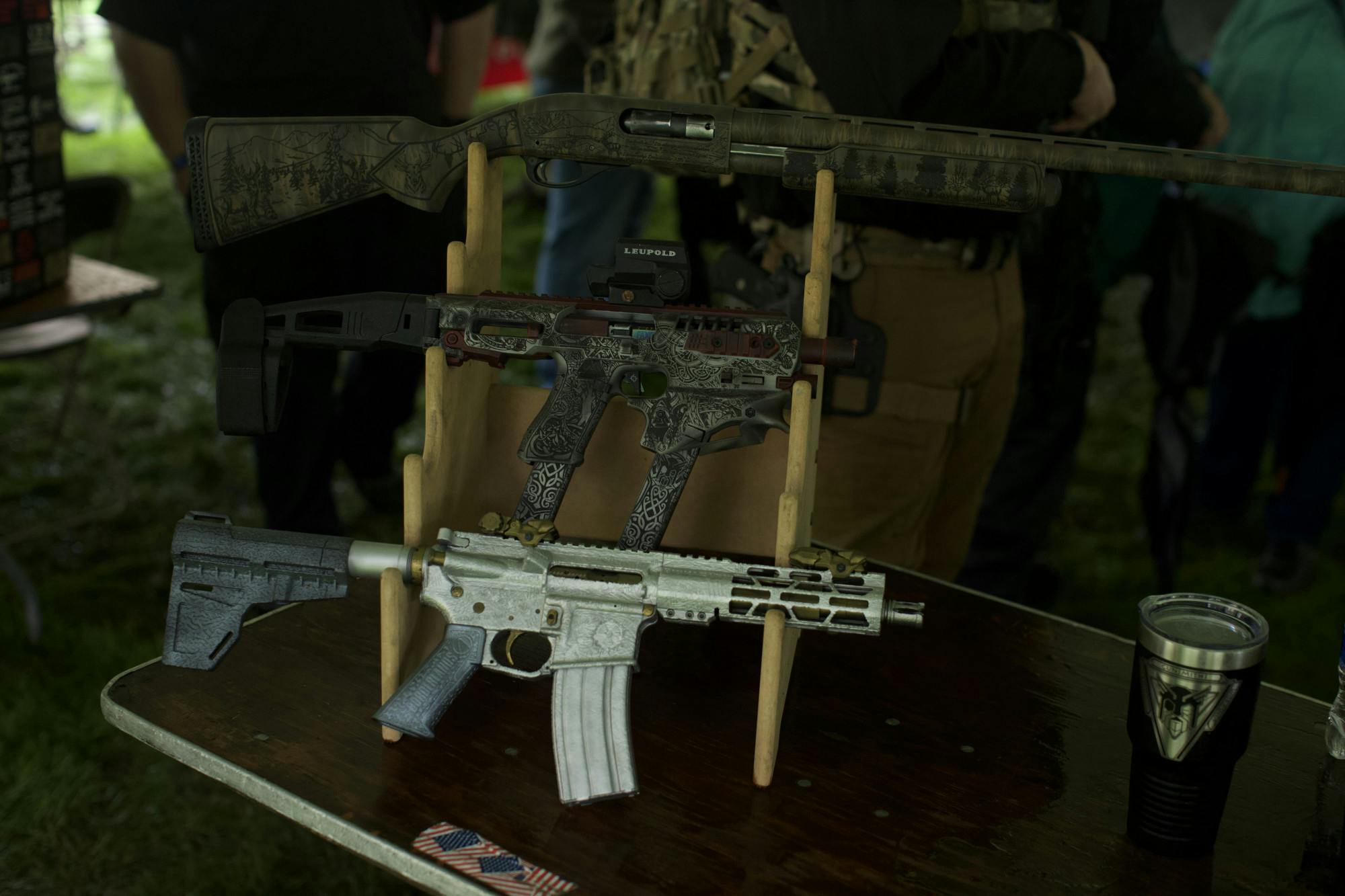The bills, if signed into law, would make it illegal to sell or possess an ammo magazine capable of containing more than 10 bullets. Exceptions are made for police, active military members and those who own a high-capacity magazine purchased before the law went into effect and reported their ownership to local authorities.
The bills also would criminalize the possession of these magazines as a misdemeanor with up to 90 days in jail or a $500 fine. Second offenses would be treated as a felony with up to two years prison time or a $5,000 fine. The measures would take effect on Jan. 1, 2023, if signed into law.
The Oxford High School shooting on Nov. 30, 2021, allegedly perpetrated by a 15-year-old student, was conducted with a handgun containing a 15-round magazine. Law enforcement said that the shooter had brought two magazines with him.
Michigan House Democrats said that these measures would work to prevent even greater tragedies in the future.
Reps Brenda Carter, D-Pontiac, and Cynthia Johnson, D-Detroit, were touted as leaders on the bills. In an interview, Carter discussed the thought process behind these measures.
“We were thinking that if we limit the capacity of magazines, they would have to take a minute to actually rethink and reload, and in doing so, that may give the people a chance to escape … maybe get to safety,” she said. “We need to be able to look at what's going on not only in Michigan, but across the nation and realize that sensible gun violence laws — not trying to take anyone's firearms away, but actually trying to get the firearms out of the hands of what we call bad actors — is what we're hoping to reach across the aisle with our colleagues and say, ‘Yes, we can put something in there. We can reach a compromise and we can keep our state and our nation safer.’”
“What are guns for? They're supposed to kill — kill who, what? I can understand if you're going hunting. But it's almost like human beings are going out to hunt other human beings,” Johnson, a primary sponsor of one of the two House bills, said. “Why do you need a gun that holds more than 10 bullets?”
“We need responsible legislators to not put the lives of human beings — make them political pawns. I know guns don't kill people. I know that. But we have to do something to limit the number of people who die as a result of gun violence,” she added.
Several other sponsors of these bills were able to discuss their thoughts on the measures.
“This is a common-sense step that would have been effective in having an impact on the most recent tragedy, and something that I think is an important part of common-sense control aimed at reduction of tragic life loss by gun violence here in Michigan,” Julie Brixie, D-Okemos, said.
Brixie was one of several representatives to point out the fact that no piece of Democrat-proposed gun control legislation has even received a hearing in the state legislature since 2010.
“My hope is that my colleagues that have common sense and that recognize that this escalation of gun violence that continues to occur in our state is something that we have the ability to impact,” Brixie said.
“We want to be protecting lives, and part of protecting lives is to enact laws that will help get guns out of the hands of people who shouldn't have them, who have mental health issues or other tendencies toward violence. Why put a killing machine in their hands?”Padma Kuppa, D-Troy, another sponsor of these bills, said.
The measures regarding magazine capacity likely will face significant scrutiny in the State House and State Senate, both controlled by the Republican Party. However, with slim margins of control and national outrage surrounding the recent Oxford High School shooting, the bills may see a path to passage.
Senate Majority Leader Mike Shirkey, R-Clarklake, told MLive the day after the shooting and before these specific measures were proposed that, “If we get obsessed with eliminating all risks, we will then develop and evolve into a country we won’t recognize because we’ll also have no freedom. It’s a balance.”
On the possibility of passing the bills despite likely Republican opposition, Carter said she remains hopeful.
“We could sit down and we could talk about the differences and maybe come to some kind of resolution that would be acceptable to both sides,” she said.
Carter said in discussing the measures with some of her Republican constituents, she found that sensible gun ownership is a bipartisan ideal.
Support student media!
Please consider donating to The State News and help fund the future of journalism.
Rep. Kelly Breen, D-Novi, is another sponsor of these pieces of legislation.
“My general thought is anything that the Republicans are trying to do unilaterally, even if they pushed it through both chambers, which they control, it would probably be vetoed by the governor,” Breen said. “All the Democratic packages are all Democratic, and there's little chance that would even get a hearing. So, you're at an impasse there.”
“The only way we're going to make any impact to address gun violence overall is in a bipartisan fashion,” She added. “And with that, I start with the assumption that nobody likes this. Nobody's happy. Everybody is appalled. Everybody is upset. And we all love this country. And if we can start from that place, we can find a way.”
“I don't know what makes it Democrat or Republican, because really what we're looking for is saving lives,” Kuppa said. “I don't think that one party has the right to save life, and so I think we should all be working together to save lives.”
The Michigan House Democrats touted the bills along with other previously introduced bills that they say would bolster gun safety in the state, including measures to require universal background checks on all gun sales, ban firearms in Michigan Capitol buildings, prohibit convicted domestic abusers from possessing guns for eight years after conviction and increase access to safe gun storage methods.
Rep. Rachel Hood, D-Grand Rapids, discussed her support for these measures and her own bill that would establish a seven-day waiting period for all pistol sales in the state.
“Data across the country indicates that waiting periods for pistol sales create a buffer that reduces the rate of impulsive acts of gun violence,” Hood said. “These waiting periods are shown to reduce suicide rates by seven to 11%, and they're shown to reduce gun homicides by 17%.”
Hood said a “waiting period” may be in order to facilitate change.
“While it isn't a full safe solution in the instance of the Oxford school shooting, it may have given professionals in the school environment more time to work with the parents and work with the shooter to prevent the event,” she said.
Hood is referencing the tight timeline in which the alleged shooter’s weapon was obtained — the gun was purchased on Black Friday, just four days before the shooting on Tuesday, Nov. 30, 2021.
Hood’s legislation — H.B. 5658 — was formally introduced in the House Dec. 15.
Discussion
Share and discuss “House Democrats discuss gun safety legislation in wake of Oxford shooting” on social media.







